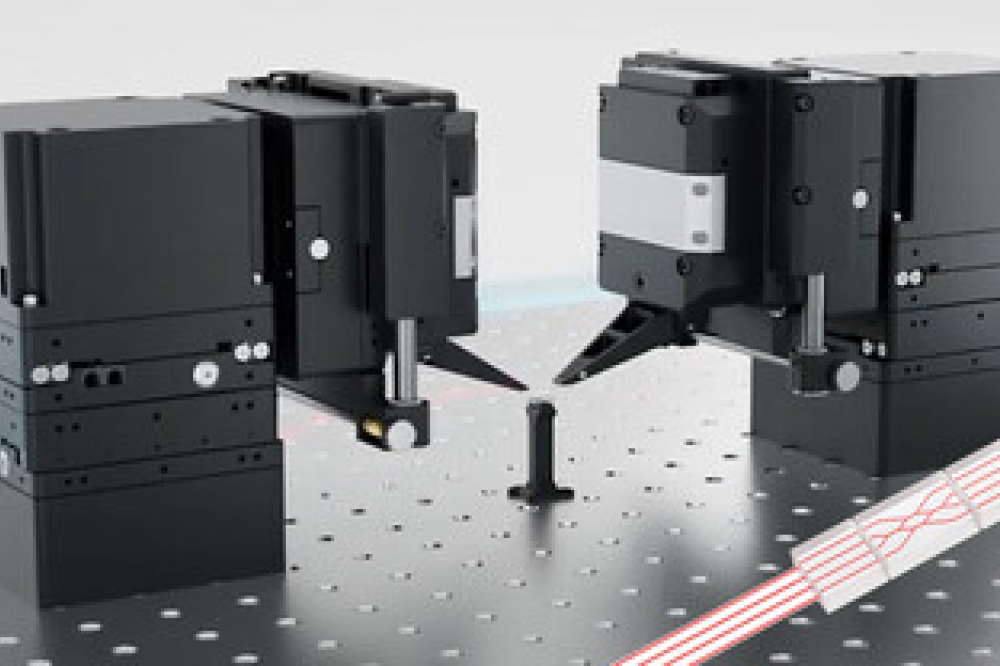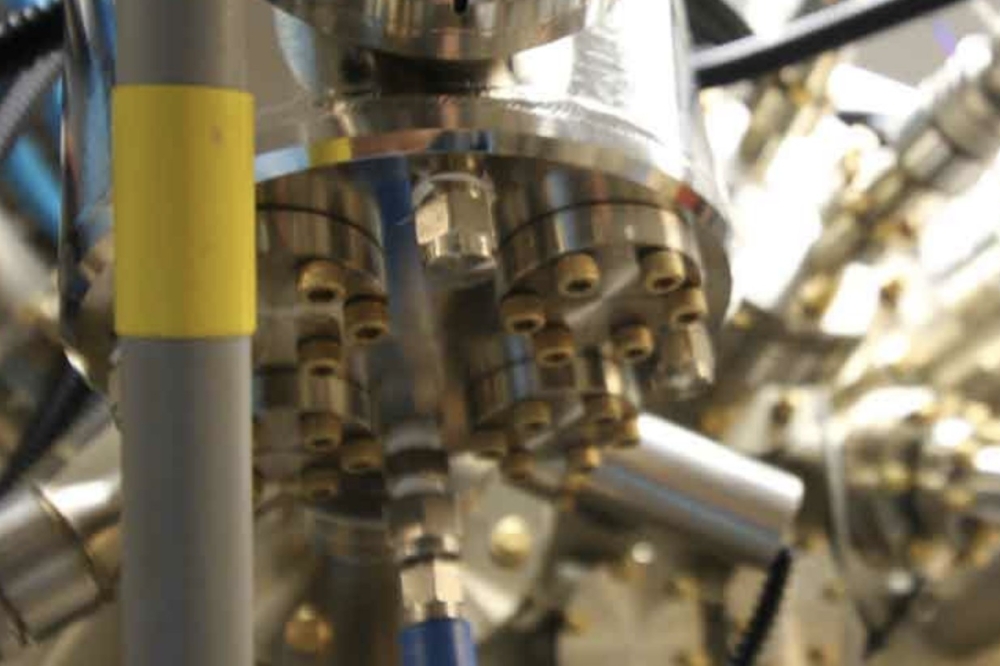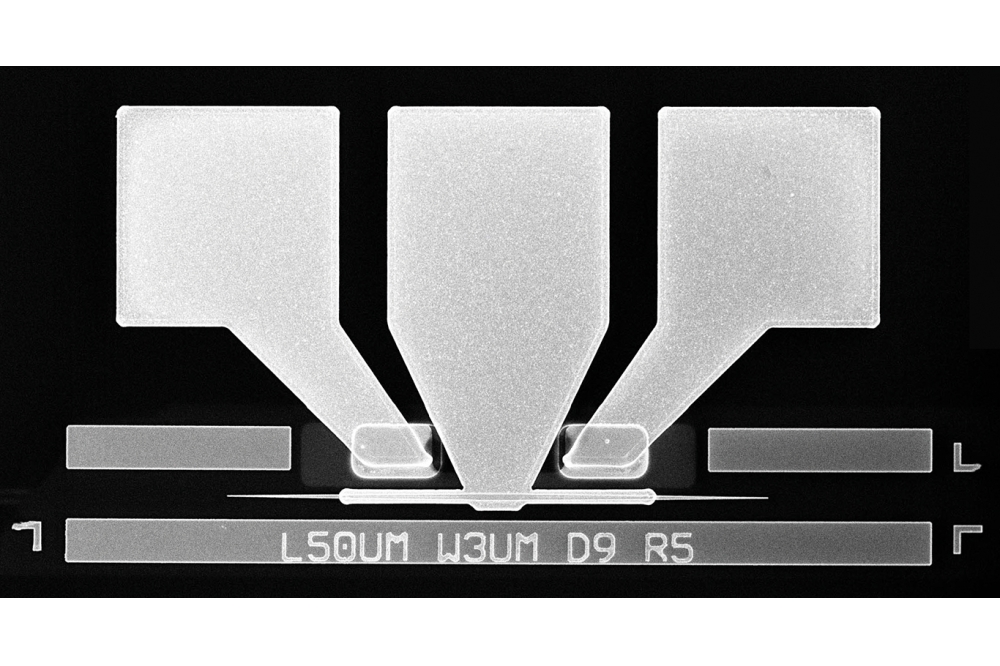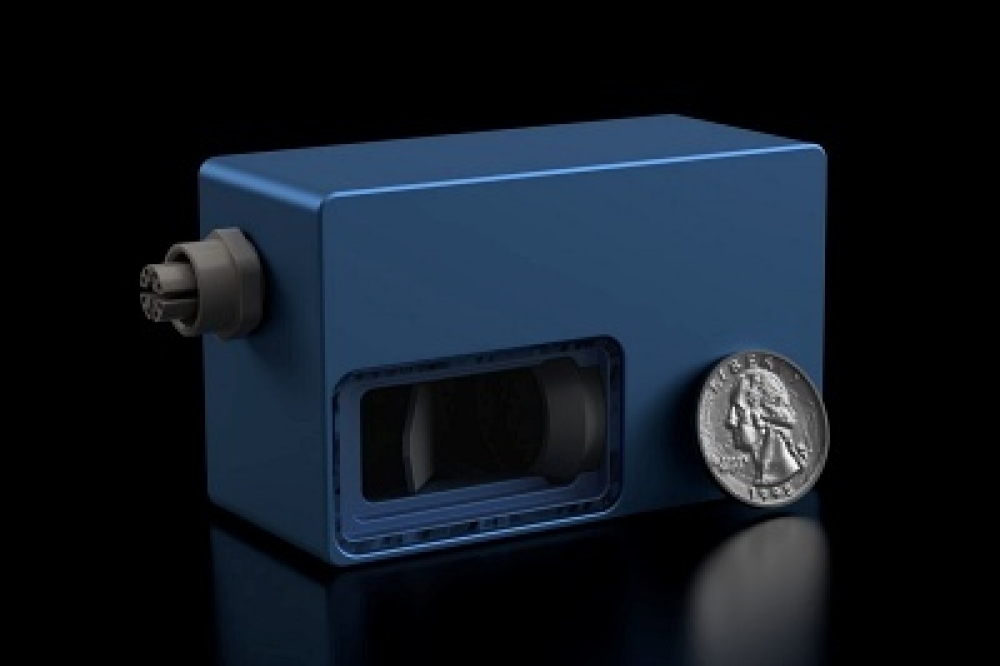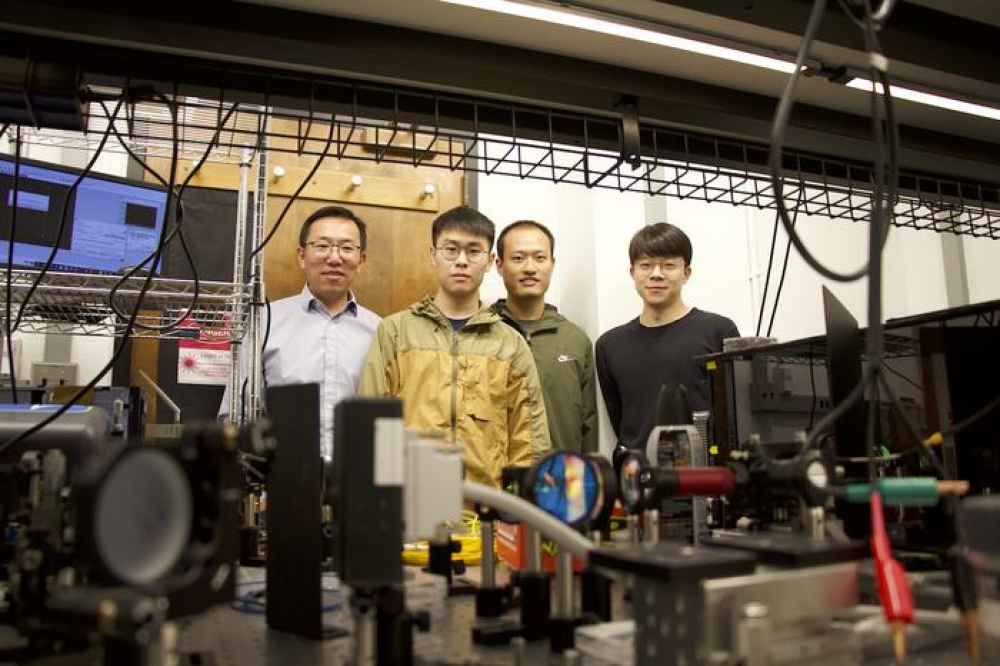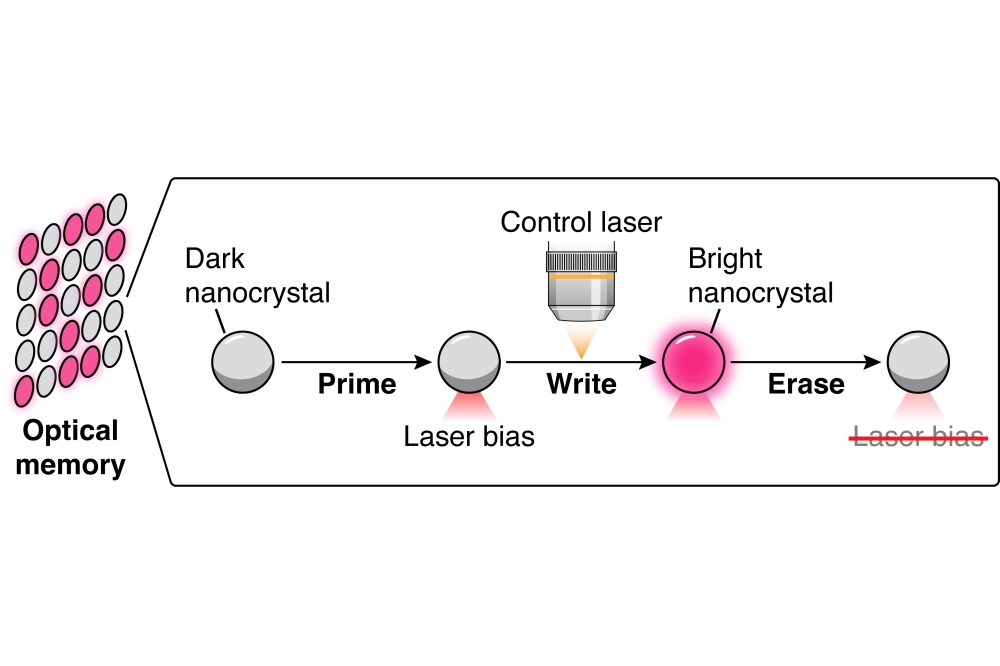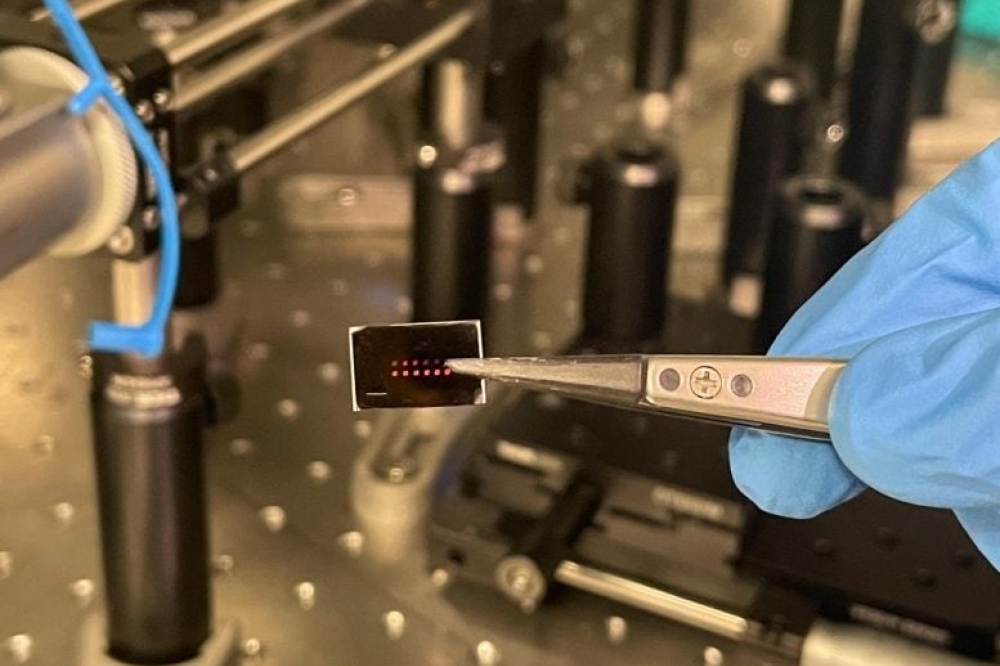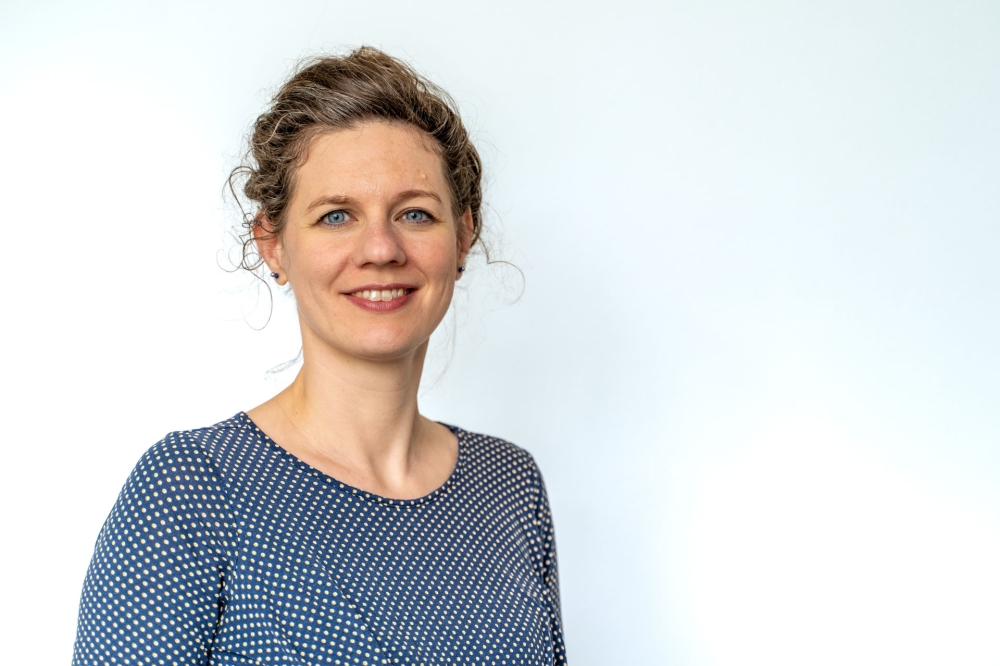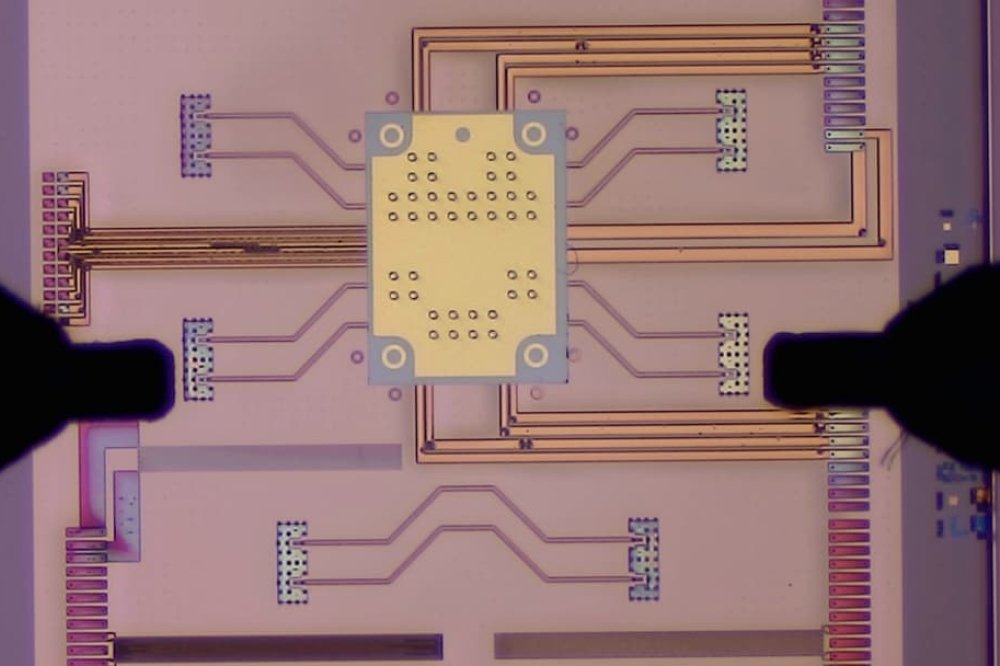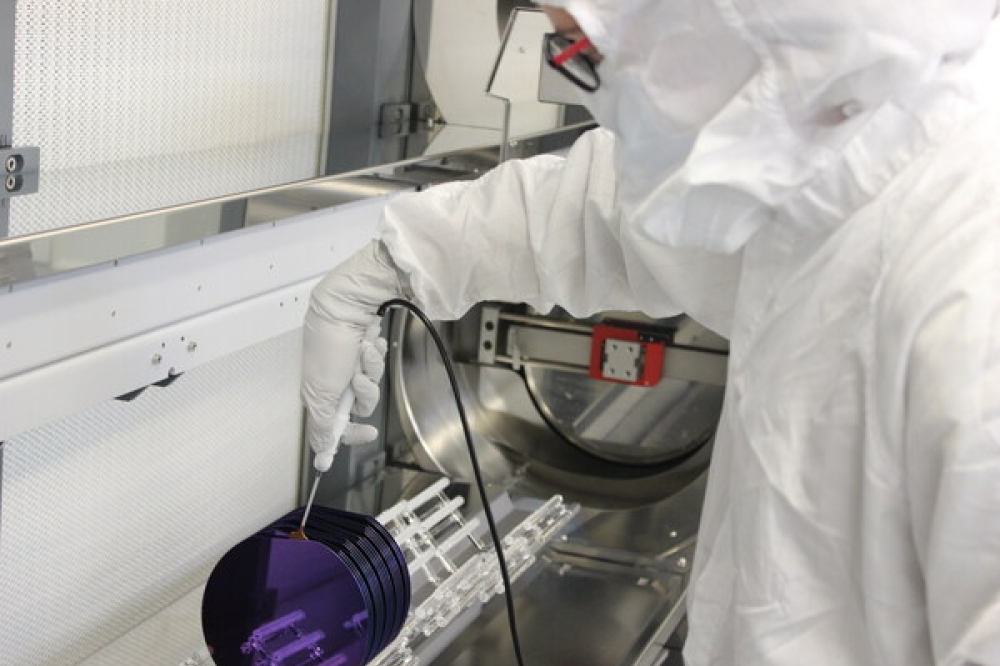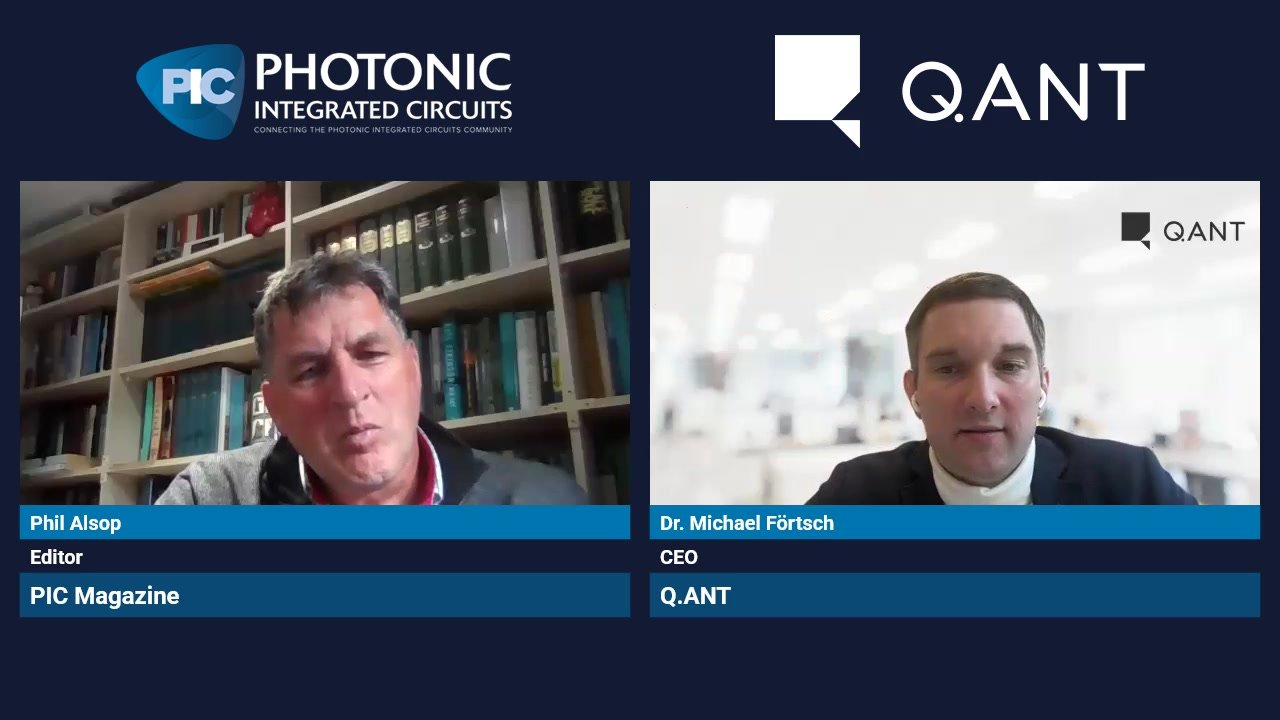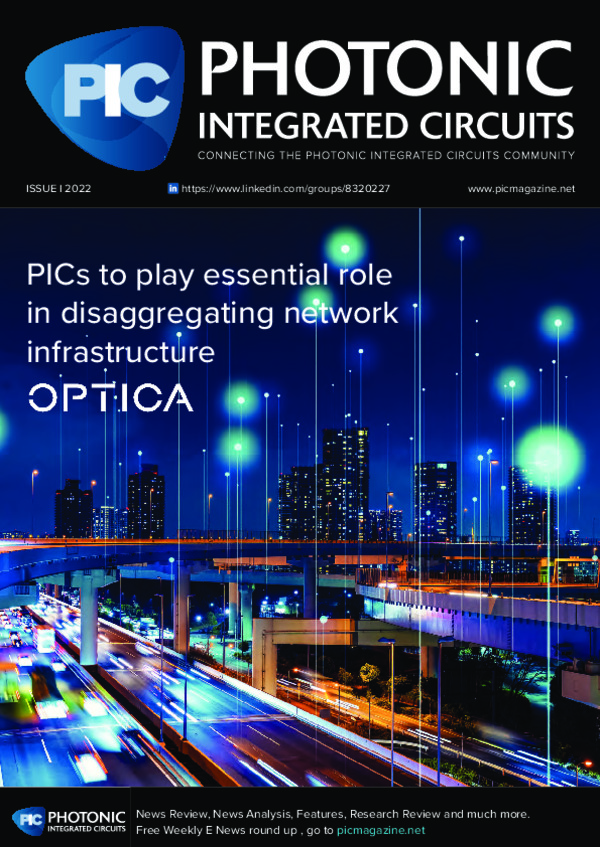
Multi-vendor collaboration delivers faster, reliable PIC testing

Testing the ever-expanding universe of PIC-based devices being designed and manufactured for next-generation photonic systems is complex. Industry leaders specializing in test and measurement including EXFO are increasingly pooling expertise and resources to create what might be described as a ‘super-system’ for addressing complex testing requirements. Collaborative system solutions, often called simply ‘interop’, are being highlighted at upcoming industry conferences such as Optica’s OFC conference scheduled for March 2022 and at the PIC International Conference that is part of AngelTech 2022 scheduled for June.
COMPONENT MANUFACTURERS globally need turn-key solutions to support end-to-end Photonic Integrated Circuits (PIC) testing in volume production settings. Fortunately, innovation in light coupling methods has made wafer-level testing possible for mass production, simplifying testing, reducing test time per unit, and avoiding bottlenecks.
But today’s new PIC designs used in various types of applications bring with them added challenges for automated testing, requiring that diverse types of test and manufacturing instrumentation integrate and perform seamlessly. Multi-vendor collaborations can be key to successfully turning multi-faceted manufacturing and testing scenarios into automated, scalable setups. For example, EXFO has developed solutions that can interoperate with any third-party instrumentation such as wafer disc handling systems.
Interoperative solutions, also called ‘interop’ when describing the overall class of components and systems that can function in supplemental or complementary fashion, are enabling companies of all sizes to pool resources and develop testing or other manufacturing systems that combine components to create a higher order of system, most often with expanded capabilities. Typically, interop approaches rely on agreements by participating companies to use various standard components or systems in unison, all with established performance metrics, much the way today’s microelectronic standards for process tools and test instrumentation enable silicon manufacturers to use the same toolsets across multiple applications, circuit types and technologies.
“We expect multi-vendor collaboration to be an ongoing trend given that interoperability brings together the best of disparate, specialized technologies to meet the exacting needs of component research & development and mass scale manufacturing globally,” said Michael Scheppke, Vice President, Global Labs and Manufacturing at EXFO.
At OFC 2022 in San Diego, EXFO plans to demonstrate PIC and transceiver testing collaborations in three automated set-ups with multiple partner companies, bringing together leading-edge PIC testing solutions, explained Scheppke.
EXFO offers a number of test and measurement solutions that are designed for interoperability
Accelerating photonic testing
Two of the interop demos at OFC will feature partner solutions in combination with EXFO’s CTP10 testing platform and T100S-HP continuous tunable laser. EXFO’s solution enables swept laser testing of passive optical components at a picometer resolution and at high speed, even under the most stringent conditions. With the wafer disc auto-alignment capability of the CTP10, the lowest possible time is required to find the optimum position in and out of the PIC device under test, which is an essential requirement to keeping the overall testing time to a bare minimum.
The scheduled demos represent possibilities for PIC component manufacturers looking to scale operations cost-effectively. Demonstrations expected to be showcased at OFC include the following:
EXFO and MPI Corporation
At MPI’s OFC booth, visitors will see EXFO’s CTP10/T100S-HP integrated with MPI’s PIC-specialized TS3000SE wafer probe stations that enable precision optical component alignment, and other dedicated functionality within their unique SENTIO® software. The collaboration delivers a fully integrated and automated PIC test solution at wafer level to deliver reliability, flexibility and scalability.
Aerotech, EHVA and EXFO
At the Aerotech booth, Aerotech, EHVA and EXFO will demo a fully automated integrated photonic PIC test solution that accelerates photonic testing. EHVA’s process software suite seamlessly integrates EXFO’s advanced swept continuous laser scanning technology with Aerotech’s ultra-high precision photonics aligners, delivering exceptional reliability and efficiency.
Optiwave – Automated solutions for labs and manufacturing
An advancement with application for the lab through production settings will be demonstrated at the Optiwave booth.
EXFO and Optiwave
This joint demo will feature OptiInstrument, a software tool designed by Optiwave in collaboration with EXFO. OptiInstrument makes it easy to communicate with instruments and automate their operation using remote control scripts. The system is designed for use by researchers, scientists, photonic engineers, professors, and students. OptiInstrument provides a simple, efficient and user-friendly way to meet multiple application requirements.
Getting hands-on with PIC expertise
The 8th annual PIC Workshop will be held March 9 at OFC for those interested in discovering more about ways that photonic integration can benefit various applications requirements.
According to event organizers, the overarching goal of the PIC workshop is to bring together all relevant players, independent of material system, for the purpose of providing an in-depth overview that allows attendees to get to know key PIC service providers and better appreciate what can be accomplished in various test environments.
EXFO is a leader in the relatively new domain of PIC testing and will be participating in the workshop.
More information is available at: https://www.exfo.com/en/corporate/news-events/events/ofc-2022/



